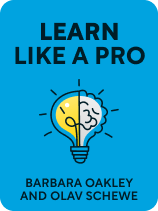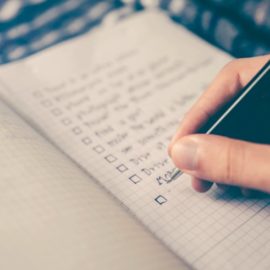

This article is an excerpt from the Shortform book guide to "Learn Like a Pro" by Barbara Oakley and Olav Schewe. Shortform has the world's best summaries and analyses of books you should be reading.
Like this article? Sign up for a free trial here.
When you read, does it feel like the material doesn’t stick? Do you wish you could read faster without sacrificing comprehension?
Reading is one thing. Understanding what you read is another. Recalling what you read is yet another thing. In Learn Like a Pro, Barbara Oakley and Olav Schewe provide strategies to help you become a more efficient reader.
Take a look at their advice on how to read and understand effectively.
How to Read and Understand Effectively
Reading might seem like a basic skill that you learned long ago. But, it’s likely that you could get far more out of what you read. Improving reading efficiency is not only about increasing speed; it’s about optimizing your comprehension—understanding what you read and remembering it later. Focusing solely on increasing your reading speed can easily harm your comprehension. The authors recommend three pieces of advice on how to read and understand effectively.
(Shortform note: Scientific research supports the authors’ claim that there’s a trade-off between speed and accuracy when it comes to reading. Doubling or tripling reading speed from the normal rate (around 250 words per minute to 500-750 words per minute) may not allow readers to comprehend the text as thoroughly as they would at a normal pace. However, speed reading or skimming could be helpful for readers who prioritize getting through the text quickly over understanding it completely. To increase reading speed while maintaining high comprehension, you should improve your language skills, such as by expanding your vocabulary because language skill is a key factor in reading quickly with high comprehension.)
#1: Preview the Text
Preview the text before reading it in detail. Getting a big-picture view of the text, its organization, and the overall themes will prepare your mind for what is coming and make it easy to comprehend.
#2: Read Actively
To read actively, practice active recall by asking yourself to restate key concepts as you read. Highlighting can also help you read actively, but only when you review what you’ve highlighted the next day—your brain doesn’t build neural connections in your long-term memory unless you review your highlights after some time has passed.
#3: Annotate
Another active reading strategy is annotation. As you read, write down comments and questions that come to mind. In your own words, note key concepts and their relationships, and then, in the end, write a small summary of what you read. Annotating as you go makes reviewing and referring back to the text easier. It also helps transfer the information into your long-term memory for quality learning.
(Shortform note: The authors’ reading tips above are a part of the broader reading strategy outlined by Mortimer J. Adler and Charles Van Doren In How to Read a Book. Pre-reading your text before reading it closely is an important aspect of what Adler and Van Doren call the inspectional reading stage—glancing through the book to get an overall understanding of what the book is about before trying to understand what the author is saying. Active reading techniques like restating key concepts as you read and writing down comments and questions are a part of the analytical reading stage, where you dive deeper into the concepts of the book and word to understand the concepts as best you can.)

———End of Preview———
Like what you just read? Read the rest of the world's best book summary and analysis of Barbara Oakley and Olav Schewe's "Learn Like a Pro" at Shortform.
Here's what you'll find in our full Learn Like a Pro summary:
- Proven techniques for mastering new skills and knowledge quickly
- How to improve your memory, increase your focus, and manage your time
- Practical tips for how to excel in academic settings






